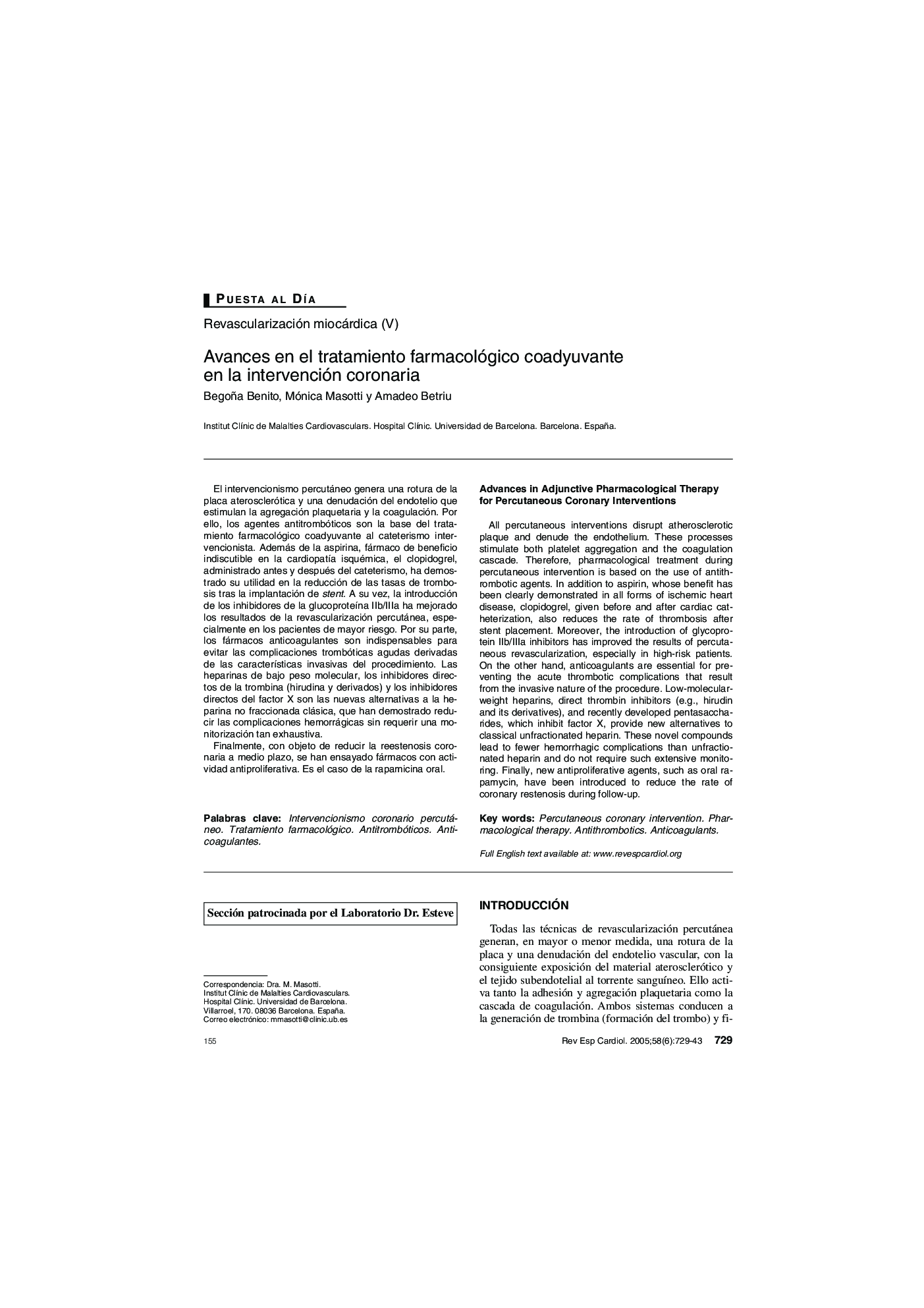| کد مقاله | کد نشریه | سال انتشار | مقاله انگلیسی | نسخه تمام متن |
|---|---|---|---|---|
| 9181349 | 1182007 | 2005 | 15 صفحه PDF | دانلود رایگان |
عنوان انگلیسی مقاله ISI
Avances en el tratamiento farmacológico coadyuvante en la intervención coronaria
دانلود مقاله + سفارش ترجمه
دانلود مقاله ISI انگلیسی
رایگان برای ایرانیان
کلمات کلیدی
AntitrombóticosAntithrombotics - آنتی ترومبوتیکpharmacological therapy - درمان داروییTratamiento farmacológico - درمان داروییAnticoagulantes - ضد انعقادpercutaneous coronary intervention - مداخله کرونری از راه پوستIntervencionismo coronario percutáneo - مداخله کرونری پوستیAnticoagulants - پادبند، ضدانعقاد
موضوعات مرتبط
علوم پزشکی و سلامت
پزشکی و دندانپزشکی
کاردیولوژی و پزشکی قلب و عروق
پیش نمایش صفحه اول مقاله

چکیده انگلیسی
All percutaneous interventions disrupt atherosclerotic plaque and denude the endothelium. These processes stimulate both platelet aggregation and the coagulation cascade. Therefore, pharmacological treatment during percutaneous intervention is based on the use of antithrombotic agents. In addition to aspirin, whose benefit has been clearly demonstrated in all forms of ischemic heart disease, clopidogrel, given before and after cardiac catheterization, also reduces the rate of thrombosis after stent placement. Moreover, the introduction of glycoprotein IIb/IIIa inhibitors has improved the results of percutaneous revascularization, especially in high-risk patients. On the other hand, anticoagulants are essential for preventing the acute thrombotic complications that result from the invasive nature of the procedure. Low-molecularweight heparins, direct thrombin inhibitors (e.g., hirudin and its derivatives), and recently developed pentasaccharides, which inhibit factor X, provide new alternatives to classical unfractionated heparin. These novel compounds lead to fewer hemorrhagic complications than unfractionated heparin and do not require such extensive monitoring. Finally, new antiproliferative agents, such as oral rapamycin, have been introduced to reduce the rate of coronary restenosis during follow-up.
ناشر
Database: Elsevier - ScienceDirect (ساینس دایرکت)
Journal: Revista Española de CardiologÃa - Volume 58, Issue 6, June 2005, Pages 729-743
Journal: Revista Española de CardiologÃa - Volume 58, Issue 6, June 2005, Pages 729-743
نویسندگان
Begoña Benito, Mónica Masotti, Amadeo Betriu,